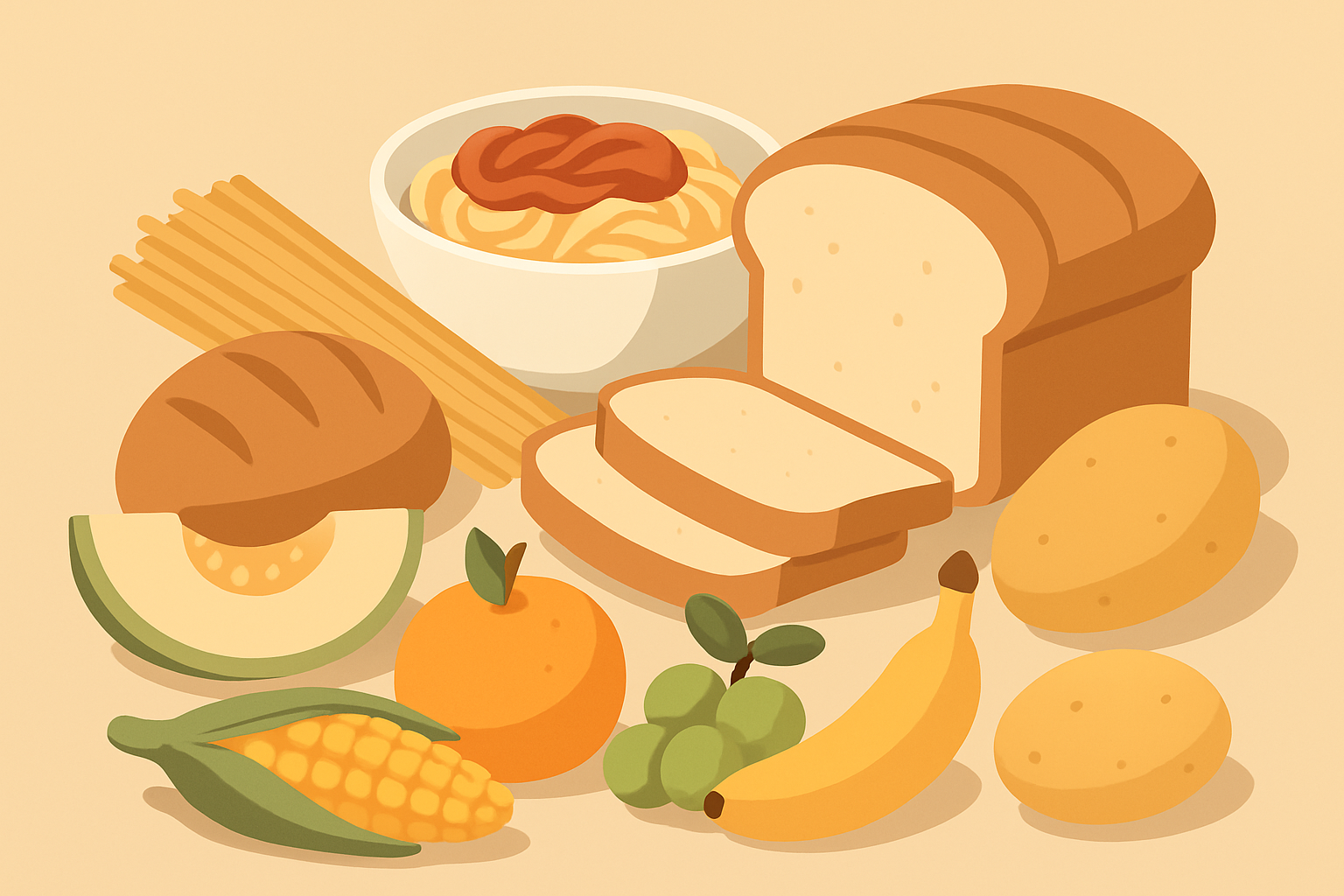
What Are Carbs?
Carbohydrates, or carbs, are one of the three main macronutrients — the other two being protein and fat. They are a primary source of energy for your body. Carbs are found in a variety of foods, including bread, fruits, and vegetables. Despite their bad reputation, carbs are essential for a balanced diet and provide the fuel your brain and muscles need to function properly.
- Simple vs Complex Carbs: Simple carbs are quickly digested and found in foods like sugar and white bread. Complex carbs digest more slowly and include whole grains and legumes.
- Role of Fiber: Fiber is a type of carbohydrate that aids digestion and is crucial for maintaining a healthy gut.
How Do Carbs Affect Weight?
The belief that carbs make you fat stems from misconceptions about how they are metabolized. Carbs themselves do not directly cause weight gain; rather, it's the overall calorie surplus that contributes to excess weight. Consuming more calories than your body needs will result in weight gain, regardless of where they come from — be it carbs, protein, or fat.
- Calories Matter: Weight gain is ultimately about consuming more calories than you burn.
- Types of Carbs Matter: Complex carbs can be more favorable for weight management than simple sugars as they provide steady energy and help in satiety.
Common Misconceptions About Carbs
Several myths surround carbohydrates and their impact on weight. Let’s address some common misconceptions to help you make informed dietary choices. For instance, while low-carb diets like low-carb, keto, and everything in between are popular, they are not the only path to weight loss.
- All Carbs Are the Same: This is false. Understanding macros 101 can help you differentiate between beneficial complex carbs and less beneficial simple carbs.
- Carbs Cause Immediate Weight Gain: Rapid weight gain is more about water retention due to glycogen storage, not fat gain.
- Cutting Carbs is Essential for Weight Loss: This isn't necessarily true. Flexible dieting shows that moderation and balance are key.
Incorporating Carbs into a Healthy Diet
Carbs are not the enemy when it comes to eating healthy. The key is to make informed choices about the types of carbs you include in your diet. Emphasizing whole grains, fruits, and vegetables can contribute to overall health and satiety.
- Choose Whole Grains: Incorporate whole grains like oats and brown rice, which are nutrient-dense and fiber-rich.
- Balance Your Plate: Pair carbs with proteins and healthy fats to sustain energy levels and prevent spikes in blood sugar.
- Monitor Portions: Keep an eye on portion sizes, keeping calories in line with your daily needs.
Conclusion
Understanding that not all carbs are bad and recognizing their role in your diet can help you make healthier dietary choices. If you're struggling with weight management, consider evaluating your overall diet and activity level rather than focusing solely on carbohydrate intake. For more insight on carbs, check out whether carbs are the enemy in your diet.
Frequently Asked Questions
Do carbs make you gain weight?
Carbs themselves don't cause weight gain. Weight gain occurs when you consume more calories than your body burns. Understanding this is crucial when evaluating your dietary habits.
Are all carbs bad for you?
Not all carbs are bad. Complex carbohydrates found in whole grains and vegetables are beneficial and provide essential nutrients, unlike simple sugars.
Can I eat carbs and still lose weight?
Yes, you can lose weight while consuming carbs. Success depends on maintaining a calorie deficit and choosing nutrient-rich carbs. Consider approaches like flexible dieting for balance.